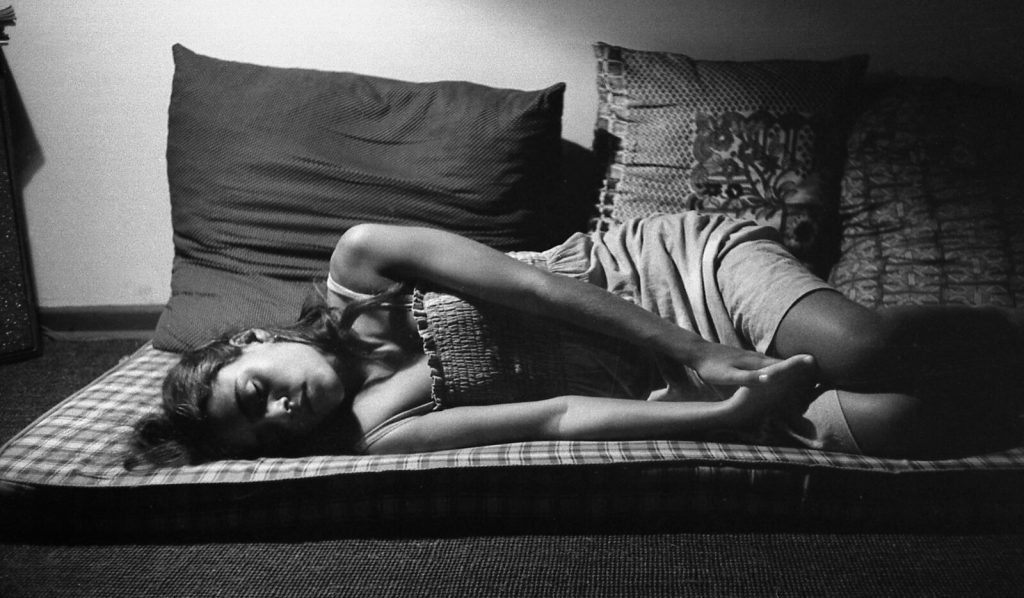Struggling to fall asleep at night is a common problem for many people. Luckily, there are simple steps you can take to improve the quality of your sleep and feel more refreshed and productive during the day. This article provides practical tips and techniques to help you get a good night’s rest. Rather than relying on tools and gadgets, the focus is on simple changes you can make to your routine and habits. To further assist in your journey to better sleep, additional resources and readings are also included.

Adding some of the best linen duvet covers to your bedroom?
To effectively address insomnia, we must understand its root causes. Approximately half of all cases are linked to psychological or emotional issues such as stress and mild depression. Once the underlying issue is addressed, the insomnia often improves.
Good sleep is crucial for our overall well-being and health, as we spend a third of our lives sleeping. Rather than relying on medication with potential side effects, consider natural remedies for better sleep, such as proper sleep habits, food and drinks for good sleep, and techniques for proper sleep.
Start by identifying the root cause of your sleep difficulties. Chronic illness, heartburn, diabetes, cardiovascular disease, and mental health problems like anxiety, stress, and depression can all contribute to insomnia and drowsiness.
To improve your sleep, focus on these four methods:
- Home remedies for good sleep
- Proper sleep techniques
- Food and drinks for good sleep
- Good sleep habits
Table of Contents
Which bed is best for sleeping?
There are so many choices. Memory foam mattress will make most people comfortable. If you snore at night, you should getting an adjustable beds for snoring.
Want the best bed frame with storage?
Exercising everyday
Vigorous exercise is best, but it is better than no activity to practice. Exercise at any moment of day, but not at your sleep’s cost. People who sleep better at night on a regular basis and feel less sleepy during the day. Regular practice also improves insomnia and sleep apnea symptoms. It will also reduce the quantity of time you spend in profound, restorative sleep phases. At least 3 hours before bedtime, try to complete moderate to vigorous workouts. If you still have trouble sleeping, move your workouts even sooner.
Relaxing like yoga at night or mild stretching at night can assist to encourage sleep. Relaxation & meditation The enemy of sleep is a racing or worried mind. Physical tension is sometimes to blame. Racing mind techniques — such as meditation, breathing exercises can assist you sleep better. You should relax by breathing from your stomach rather than your chest. Lower your heart rate, blood pressure, and stress levels to assist you sleep off. By concentrating on your body, you can recognize and release where you hold any stress or tension.
If you find it difficult to fall asleep, try relaxation of the muscle or meditation. That can be done without even getting out of bed. Although it’s not a sleep substitute, relaxation can still assist your body rejuvenate.
Preparing your bedroom: everything should be comfortable for you
Design your sleep environment to determine the sleeping circumstances you need. You should be cool in your bedroom. A peaceful bedtime routine sends your brain a strong signal that it is time to wind down. Even small changes in your setting can sometimes create a big difference to your sleep. Sleep on a cozy pillow and mattress. Make sure you are comfortable with your mattress. The mattress you’ve used for years may have surpassed its life expectancy. For most excellent quality mattresses, it should not be longer than 9 or 10 years. It takes time for your body to move into sleep mode. So, spend the last hour before bed doing a calming activity like reading.
Using an electronic device like a laptop can make it difficult for some people to fall asleep. The light emanating from these devices ‘ screens is activating the brain. If you can’t sleep, move to a different room and relax. Stay up until you’re sleepy, then come back to bed. Repeat if sleep does not follow rapidly. Cool bodies sleep better, but at night most people maintain their bedrooms too warm. It’s a good idea to take a warm shower before bedtime, because once you get out of the tub. Your body will cool down faster, which will assist you sleep away.
Looking for the best bed sheets for summer?
Small things that lead to a big problem with poor sleeping
Say NO to screen time
It is best to remove computers and televisions from the sleeping setting. Use your bed only for sleep and sex to improve the connection between bed and sleep. If you’ve got something with sleep anxiety, omit it from your bedtime routine. Turn off the tablet, TV and telephone.
To enhance the relationship between bed and sleep, use your bed only for sleep and sex.
Your screen’s blue light has the same impact on your brain as sunlight.
Say no to alcohol. No beer.
You may be amazed to understand that after drinking it, caffeine can cause sleep problems for up to 10 to 12 hours! Before bed, avoid alcohol. While a nightcap can assist you relax, once you’re out, it will interfere with your sleep cycle.
Good to Know
- We spend about one-third of our sleeping life, and sleep is vital to improving health.
- Individuals who sleep seven hours a night are healthier, living longer.
- Every night, including weekends, go to sleep at about the same moment. Maintain continuous wake-up time. On weekends, don’t sleep in. Schedules are not just about bedtime and time to wake up.
- Sunlight keeps the ticking of your inner clock. Go out as quickly as you wake up and stay in the morning sun for at least 15 minutes.
